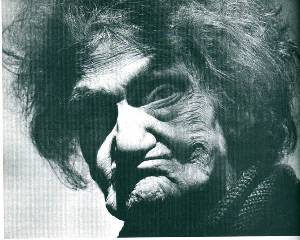How am I doing?
written today:
MAKES ME SICK
For some reason some part of me doesn't feel good.
When I close my eyes it makes my head spin.
It wants a frown on my face.
I don't think I'm sick.
I think it's making me sick.
I don't know how to say that every thing is part of me.
Nothing is wholly other.
Nothing is attainable.
Everything is text is read.
Language draws us together by tearing us apart.
Driving a wedge.
At some point the log(ic) splits.
It should pop apart with a victorious snap.
I'll feel good when it happens.
That part there and that part there.
Apart.
Distinct.
My hammer will follow through.
To the ground.
The ground.
A wet hexagonal hammerhead smack the black dirt of forty years woodchips.
Maybe we should try a new bite.
Ah hell, the wedge is stuck.
Tearing us apart.
My knees from my hands.
You from me.
My back from pain.
Word from deed.
Word from God.
Was with the word and the word wasn't, shit there goes the hammer handle.
It splits, cracks, splinters.
The log stands.
United, kinda.
Now what?
Just tell me.
Another hammer?
My hands hurt.
My toes are numb.
An axe?
Occham's razor my ass.
Anything, it's everything.
The problem.
The solution.
written about a year ago:
THE ANSWER
October 18, 2004
He was sure he knew the answer. Her problems seemed to grow out of a basic misunderstanding. “How do you know who to love?” she asked. He wanted to tell her the answer, but knew she wouldn’t understand, wouldn’t believe until she saw it herself, felt it herself. Now, you may wonder if he really does have an answer. He’s probably just too complacent, too unconvicted, to really know the answer. But that’s not true. He was convicted by the truth, the simplicity, and the charge given by this answer to the point of physical pain, to the point of silent tears. He often wept for her, wept in the silence and dark still cold of his bed. He wept in the fear of the unrecognizable distinctions between temperance and complacency, between patience and stubbornness, jealousy and love, past and present, insecurity and faith.
The answer is easy; at least he thought it was. “How do you know who to love?” You love whomever you can whenever you can however you can for as long as you can. “How do you know…how do you know who, when, how, and for how long?” he was sure she would ask. The only answer he could give her then was also simple, “That’s the wrong question,” he longed to tell her, sometimes scream to her, at her, “don’t ask, ‘how do you know?’ ask instead, ‘how can I love?”
His simple answer arose from a conviction that love needs to be more general and less specific than most people in the world understand and practice. Yes, it is possible to love more than one person without killing one or both of them.
He realized the importance of unmerited forgiveness and acceptance. He realized how terribly agonizing and distressing a just world would truly be. Even his Christianity would collapse or evolve into some terrible unbearable system of constant failure if it were not for the profound importance of unmerited, unjust forgiveness.
But what about him? Did he ever weep for himself? Did he ever weep in fear or sadness over broken dreams, of an imminent dissatisfaction with life? No. No, he never wept for himself. He only felt the pain of the simplicity of the answer; its charge was enough to guarantee a sense, a meaning, and a significance of life. This does not mean there’s no depression in his existence, no mocking doubting voice in him, it is a pain that he feels, a pain that spurs him on, gives his life meaning, reminds him he is alive, but a pain nonetheless. From time to time, he longs for nothing but an end to that pain. At those times, visions of a violent self-inflicted death flood his mind because tears can’t flood his eyes. But every time, at least every time thus far, he eventually remembers that no one thing in life will ever be enough, not even her, not even if she understood him, will ever be enough to ease the pain, it will always be there, always a reminder of life. At those times, those dark, cold, silent times, he realizes nothing, and only nothing, the immense nothingness, will ever please him. And it’s nothing that he can’t have. He can only have life; he can only have everything; he can only have pain; he can only have love.


0 Comments:
Post a Comment
<< Home